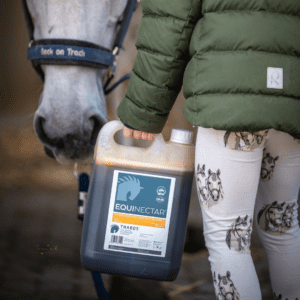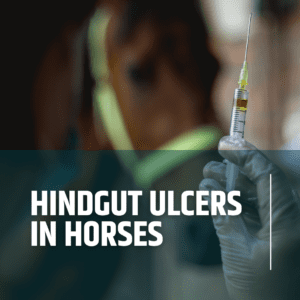01
Introduction
In the United Kingdom, persistent wet weather often leads to waterlogged fields, compelling many horse owners to modify their horses' living conditions and diets. This shift from grazing to stabled conditions, accompanied by changes in routine and diet, can significantly impact equine health, particularly concerning their digestive system.
02
Horses Deprived of Grazing Due to Wet Weather
The Importance of Grazing
Grazing is not just a feeding activity for horses; it's a fundamental part of their natural behaviour and contributes to their physical and mental well-being. Horses are designed to graze for most of the day, and this constant foraging aids in maintaining a healthy digestive system.
Effects of Grazing Deprivation
When horses are deprived of grazing, especially due to sudden weather changes, it can lead to several issues:
- Reduced Physical Activity: Lack of grazing reduces their movement, impacting gut motility.
- Emotional Stress: Horses can experience stress due to confinement and lack of social interaction.
03
Change of Routine Leading to Stress
Routine and Equine Wellbeing
Horses thrive on routine. Abrupt changes can lead to stress, which is known to adversely affect gut health. Stress can disrupt the delicate balance of the gut microbiome, leading to issues like gastric ulcers or colic.
04
Change of Diet Leading to Adjustment
Digestive Adjustment
A change in diet, particularly from fresh grass to hay or processed feeds, requires an adjustment period for the horse's digestive system. Different types of feed are digested differently, and a sudden change can upset the gut microbiota balance.
Challenges with Unseasonal Fodder
Wet weather may necessitate the use of fodder that's not ideally prepared or is out of season. This fodder might have different nutritional profiles or be less digestible, posing additional challenges for the horse’s digestive system.
Transition to Processed Feeds
Moving to bag feeds (processed feeds) or increasing the proportion fed, can be necessary during wet periods. These feeds have a different composition than fresh grass and can affect the gut microbiome. They often contain higher levels of starch, which horses’ guts are not naturally adapted to process efficiently. Even if you choose low starch feeds, these still represent a change for the horse, which requires a period of adjustment.
05
Impact on the Gut Microbiome
All these factors - stress, dietary changes, and reduced physical activity - can disrupt the delicate balance of the gut microbiome. This disruption can lead to various health issues like colic, diarrhoea, and a reduction in nutrient absorption efficiency.
06
Role of EquiNectar in Supporting Equine Gut Health
EquiNectar's Digestive Enzymes
EquiNectar, a digestive supplement, can be particularly beneficial in these situations. It provides essential digestive enzymes (amylase, fructanase, phytase, xylanase, cellulase, and beta-glucanase) that support the digestion of starch and fibres in the small intestine, thus reducing the risk of undigested starch and fructans reaching the hindgut.
Maintaining the Gut Microbiome
EquiNectar also helps in maintaining and optimising the hindgut microbiome. A well balanced microbiome is essential for optimum health and wellbeing.
07
Conclusion
Wet weather in the UK poses several challenges for horse owners, primarily in terms of managing their horses' diet and routine. Understanding the impact of these changes on equine gut health is crucial. Supplements like EquiNectar can play a supportive role in easing these transitions and maintaining a healthy gut microbiome.
ABOUT EQUINECTAR
Description
EquiNectar® is a natural feed supplement, that is scientifically proven to:
- Re-balance your horse’s gut bacteria
- Help your horse maximise benefits from its feed
- Improve your horse’s condition
More information
EquiNectar® is produced by Tharos Ltd in the UK. It is a natural source of digestive enzymes and contains only the following ingredients:
- Our patented enzyme rich malt extract
- Medium chain triglycerides (from coconut oil)
- Potassium sorbate
For more details of the enzymes within EquiNectar® take a look at the ingredients and enzymes page.
How to feed
Simply add EquiNectar® to your horse's daily feed, using the Feeding Rate chart to determine the correct amount.
For detailed instructions about how to introduce EquiNectar, please read the comprehensive Feeding Guide page.





